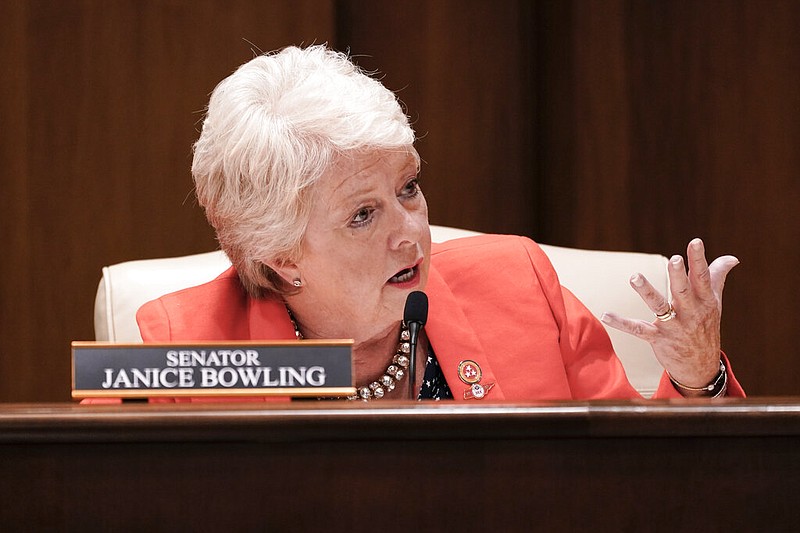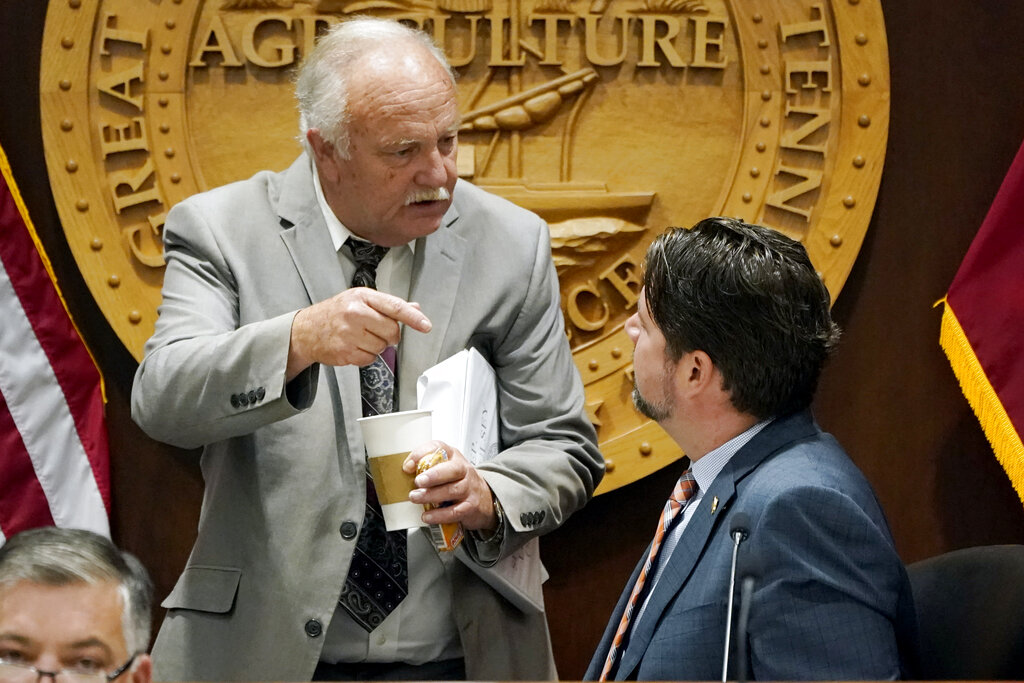NASHVILLE — An effort by two Republican lawmakers to proceed with a "nullification" bill based on a historically unsuccessful theory that individual states can invalidate federal laws or judicial decisions they deem unconstitutional is dead for the year.
A day after Senate Bill 1092, sponsored by Sen. Janice Bowling, R-Tullahoma, failed to get a second in the Senate State and Local Government Committee on Tuesday, House sponsor Rep. Bud Hulsey, R-Kingsport, reluctantly took House Bill 726 off notice Wednesday.
"I had this big program to present to you," Hulsey told State Government Committee members Wednesday. "But the senator couldn't even get a second. I'm going to bring it back next year. The way things are now in this world nowadays, I'm telling you, we have to protect (state) sovereignty."
Titled the "Restoring State Sovereignty Through Nullification Act," the measure sought to create actions and guidelines for the state to declare and nullify a federal action as void and unenforceable under the authority of the state constitution.
It would have authorized any member of the General Assembly, any court operating under the Constitution of Tennessee, any combination of 10 counties and municipalities, or a signed petition of registered voters to bring forth the proposal of a bill of nullification against a federal action.
Petitions would require a minimum of 2,000 signatures from voters for a bill of nullification. At least 25 signatures would have to come from a county for that county's vote to be accepted.
The legislation declared the General Assembly as the "sole authority" to prescribe the crimes, penalties, fines or other consequences of the violation of a bill of nullification.
Bowling asserted to Senate State and Local Government Committee members Tuesday that her measure would provide an orderly path to review federal actions or laws implemented without authority "specifically delegated."
"Is this something new under the sun?" Bowling asked rhetorically. "Our Founding Fathers anticipated there would be a need for this."
She said there are "growing threats" from the federal government to "subrogate" liberty.
Her bill failed to get a second motion from any other senator, a step that would have been required to move forward.
"We do not have a second on the bill, and it fails," Chairman Richard Briggs, R-Knoxville, said.
Bowling suggested the committee could maybe hold meetings during the summer on the bill.
"If I made it appear complicated, I apologize," she said.
Calling nullification an interesting legal topic, Briggs observed that might prove to be a several-day issue.
A similar effort in Georgia this session, Senate Bill 67, was withdrawn by its sponsors, including state Sen. Colton Moore, R-Northwest Georgia. The legislation sought to nullify any federal actions deemed to be an abridgment of Second Amendment rights.
"Although the several states have granted supremacy to laws and treaties made under the powers granted in the Constitution of the United States, such supremacy does not extend to various federal statutes, executive orders, administrative orders, court orders, rules, regulations, or other actions which collect data or restrict or prohibit the manufacture, ownership, and use of firearms, firearm accessories, or ammunition exclusively within the borders of this state," the legislation stated.
The bill was withdrawn Feb. 21.
Previous attempts
According to the National Constitution Center, there have been three prominent attempts by states to nullify federal laws or actions. Kentucky tried in 1798 to nullify the Alien and Sedition Act, while South Carolina sought to nullify two federal tariff laws in 1832.
The third attempt was an effort by Arkansas to nullify Brown v. Board of Education in 1954 to disregard school desegregation.
"In each instance, nullification's legitimacy as a constitutional theory was rejected," according to the National Constitutional Center.
South Carolina's nullification effort on the tariff laws resulted in a collision between then-President Andrew Jackson of Tennessee and his recently departed vice president, John Calhoun of South Carolina, who backed his state's nullification attempts.
"The ordinance is founded, not on the indefeasible right of resisting acts which are plainly unconstitutional and too oppressive to be endured but on the strange position that any one state may not only declare an act of Congress void but prohibit its execution," Jackson wrote.
Jackson ordered armed forces to Charleston and privately threatened to hang Calhoun, according to the White House's biography of Jackson.
"Violence seemed imminent until (Henry) Clay negotiated a compromise: tariffs were lowered and South Carolina dropped nullification," the White House account says.
Contact Andy Sher at asher@timesfreepress.com or 615-285-9480.

